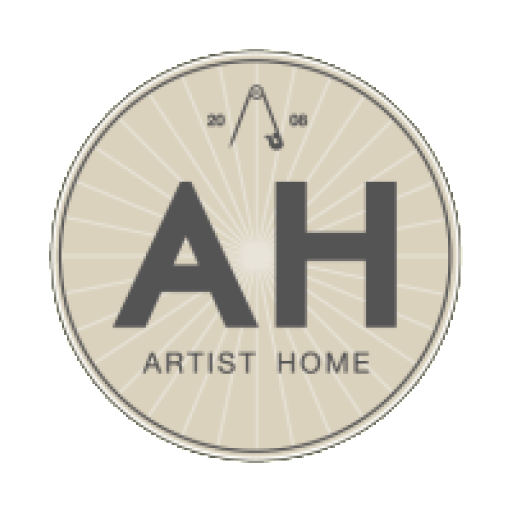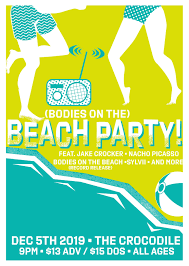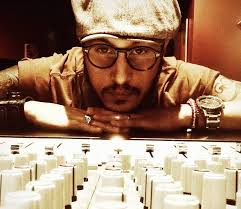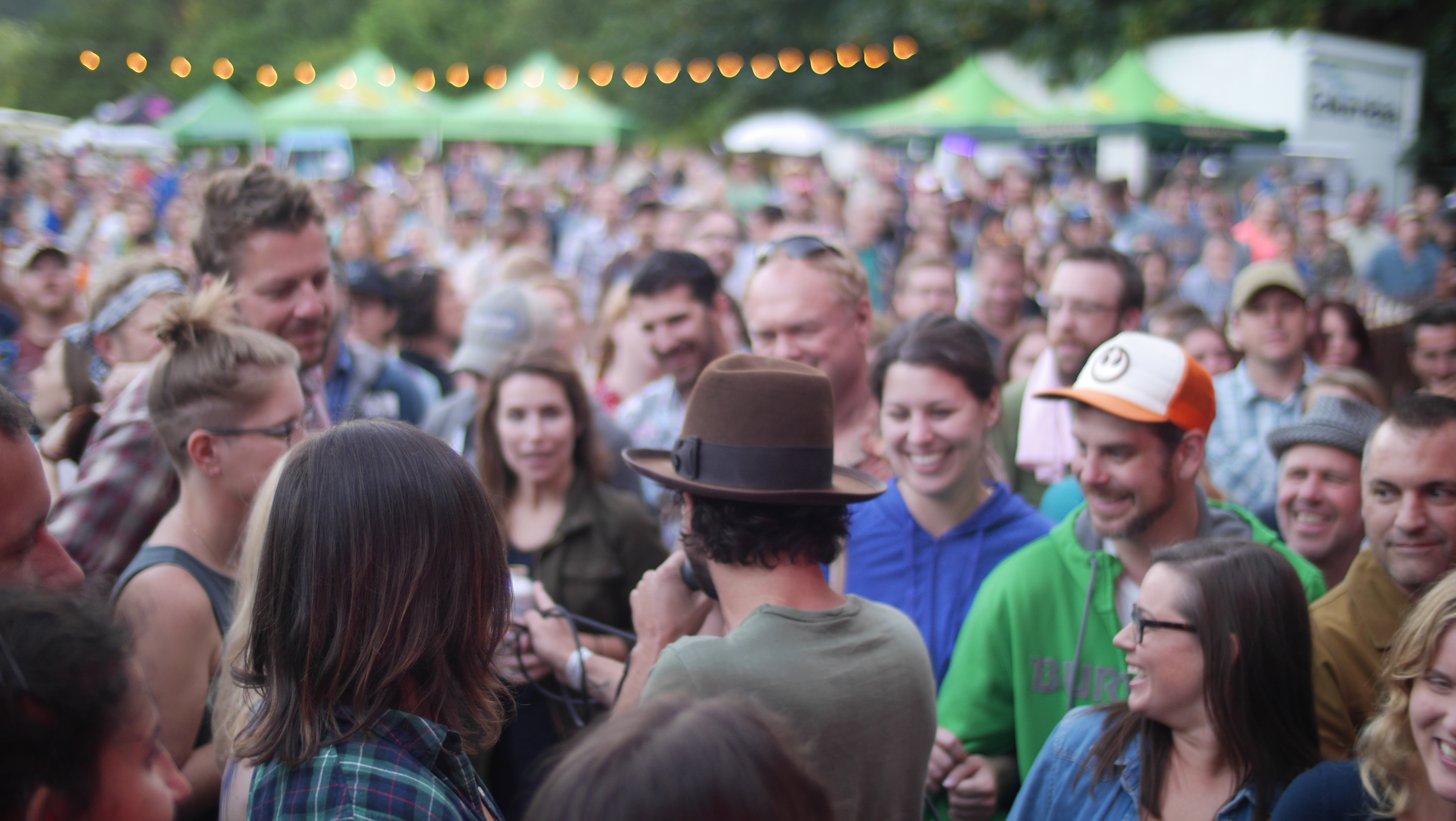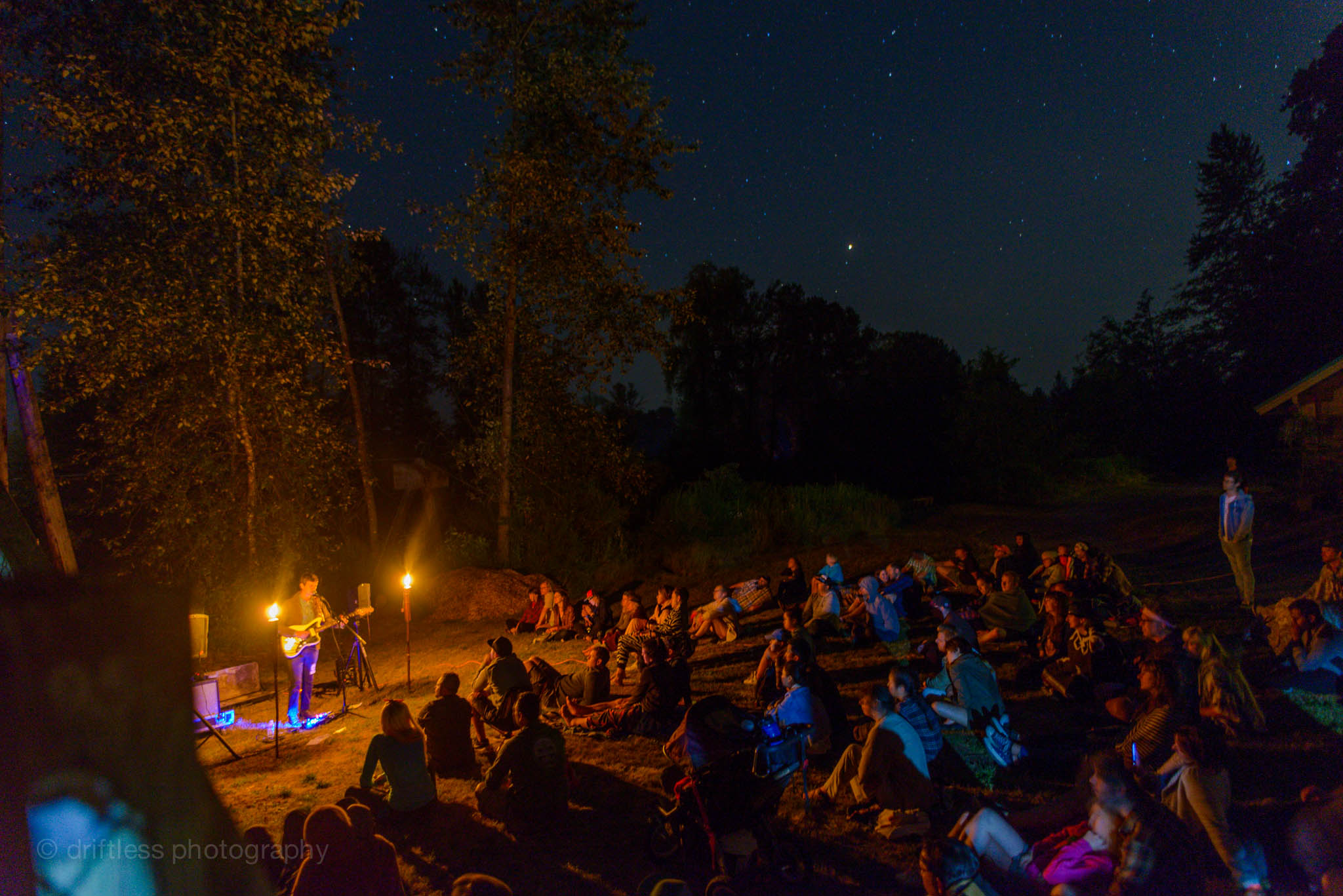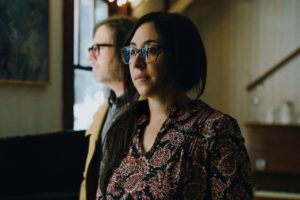
Planes on Paper. (photo: Nirav Patel)
The Yakima Valley-based folk band, Planes on Paper, is releasing a new album May 31st, a 10-track LP called Edge Markings. The album is intricate and dark but also beautiful and buoyant. And we’re happy to premiere the newest single from the record, “All That’s Flesh Is Grass,” a song that wonders how the future of humanity can be saved amidst so much political and religious polarization. And to celebrate the song and the record release, we wanted to chat with Planes on Paper front man, Navid Elliot, about how he writes music with bandmate Jen Borst, how they became pals with Josiah Johnson from The Head and the Heart and what’s coming up next for the eerie Eastern Washington band.
How did you and Jen develop your collaborative singing style?
Well, we met by chance. Jen was working for a newspaper at the time as a photographer, shooting some photos for an article about new songwriters I was in about six years ago. And she was like, “Hey, can I come sing harmony for you sometime?” And I said, “Yeah, show up whenever!” At the time, we were singing in other bands but I had a bunch of songs I’d been working on that I wasn’t going to use in that project. Jen has a really interesting ear for harmony. I think I’m a little more methodical when I’m thinking about harmony parts, doing the math. But she just kind of does none of that. She hears what I’m singing and thinks of it like she’s writing a second melody, working in conjunction with mine. Even the songs she’s the primary writer on, I usually take her lyrics and sing the melody because she has a pretty clear idea of what the harmony should be. So, I can’t take that much credit. It’s more Jen’s than mine.
What draws you to such an intricate fingerpicking style of songwriting?
It was really a matter of necessity. As we played together in the other band, we started getting gig offers for the duo. Planes on Paper for the longest time was just the two of us with my guitar. I would write a song and use mostly folk chord changes. But I thought, well, there has to be some sort of instrumental melody in between those vocal parts. It can’t be wall-to-wall lyrics, and just strumming chords between the verses is not tremendously interesting. So the guitar melody is like our third voice and it has to have its own melody. But now we have a band with us – though we still tour a lot just the two of us – so some of the melodies I can delegate. But the fingerpicking, that came out of necessity. And I’ve stumbled onto some weird guitar tuning as a result!
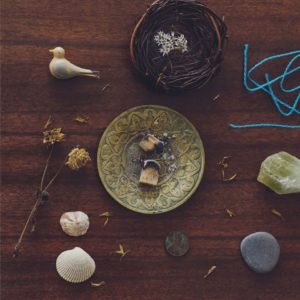
You worked on the record with Josiah Johnson from The Head and the Heart hanging out with you in-studio. How did you become friends and what did he offer the recording process?
I’ve been friends with Matty Gervais ever since I was like 10 years old. And he’s married to Charity from The Head and the Heart. So I’ve crossed paths with Josiah just hanging out and playing shows before as a result. And a couple years ago when he was taking a step away from the amount he was touring, figuring out how he was going to continue to make music – just general questioning – we got to be in contact more. He lives in the Bay Area, so we would see him when we traveled down to San Francisco to play and we’d swap songs and demos. Like, “Here’s what I’m working on – is this cool?” So when we went down to San Francisco to make this record, he just came into the studio as a friend. We stayed up late a few nights, trading songs. It’s good to have friends around when you’re making a record. You spend so much time doubting what you’re doing but if you have a buddy around who can say, “Go for it, keep having fun!” that really helps.
The new single, “All That’s Flesh Is Grass,” expresses an amount of cynicism about the state of humanity. Why was this important for you to write?
It’s hard not to feel in this global political climate like we’re headed in a good direction. We’re seeing so much hyper-nationalism and extreme religiosity. We’re polarizing ourselves. And I do think that there are some beliefs out there that don’t jive very well with the preservation of us as a species. The bridge of the song is based around some quotes from the poem Antwerp by Ford Madox Ford and the concept behind the song is: how are we supposed to collectively go into the future optimistically if there are some prevailing belief systems around us that say that the pending apocalypse is the best possible outcome? How can I speak to someone about saving the environment when there is a large percentage of Americans that believe the Messiah will return and the end will happen in their lifetime? It’s scary to me. This system that we’re living in really does benefit those of us willing to push aside morality in favor of having more. How are we going to turn this around if it doesn’t benefit us to care for each other? That’s what the song is about.
In the song, there is such beauty in the music but such lamentation in the vocals. What were you trying to investigate with this juxtaposition?
In the Bible, it’s supposed to be reassuring that “all that’s flesh is grass.” Like, we are temporary but will be rewarded with a glowing afterlife. It’s supposed to reassure. But I’m trying to use the line and flip it, like we’re going to blow this whole thing up because we don’t care about it enough. And the music, there’s this fairly famous piece written for orchestra and choir by the composer Brahms. He took the same Bible passage and wrote a big operatic masterpiece from it. So I borrowed some musical ideas from Brahms that made the song feel more overtly ominous than hopeful.
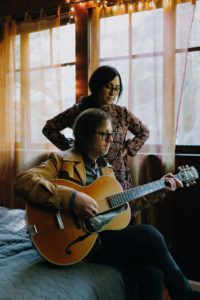
(photo: Nirav Patel)
You live in Yakima and perform often in Eastern Washington. What’s happening musically in that part of the state?
When I first moved here, there were a whole bunch of wineries and breweries starting to spring up. And that can make for a fertile place for songwriters. So I tried to bring as many songwriters from Portland and Seattle up here as possible. But the area is a hard place for bands to exist in, because there are very few ticketed venues and most of them are 400 seats and up. So if you’re here it means you’re going to spend a lot of time traveling. But there are some good younger bands making names for themselves. I started an all-ages open mic a few months after moving here and that’s led to some cool groups like Indigo Kidd, who play in Las Vegas now, ane one of my new favorite bands, Gloom. And there’s a summer Folklife festival here that I help run – this year it’s the weekend after July 4th – and every year that gets a little bigger.
Now that Edge Markings is done, what themes do you find yourself exploring?
I’m doing my best to switch brains and get out of the business side of things now. I’m sending fewer emails per day than I was a couple months ago. So I am writing a lot, which feels good. And I feel like I’m working on new things. Three years ago when I wrote some of the songs for this record, we were also releasing an EP and the song that got a lot of airplay from that was called, “Iron Boat.” It was about the drug epidemic plaguing the country. I noticed a lot of people were feeling more hopeful at the time but I was fixated on some heavier stuff. Now, people seem to hate each other. Our political climate is insane but I find myself writing more hopeful music. I’m writing songs that try to draw attention to the fact that I think the human sprit is still resilient. And I think we’ll find our way back to a better, more hopeful place.
